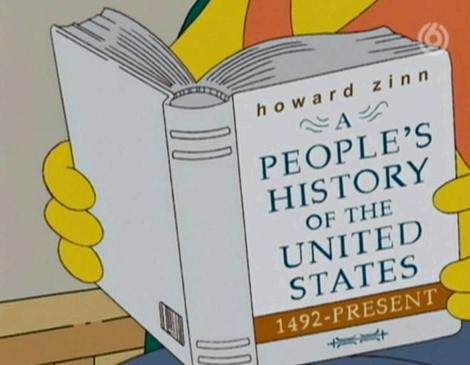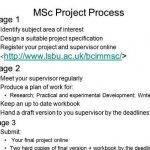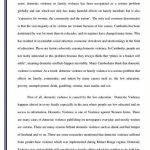These seven chapters cover a variety of different subjects. The only thing that they really have in common is that they all tend to support Howard Zinn’s general thesis. In these chapters (as in other chapters of the book), Zinn is arguing that the United States has been a country that has oppressed various members of its society. In this answer, I will give only a brief summary of each chapter since no more will fit in the space provided. Please follow the link below for more extensive summaries.
Chapter 6 is entitled “The Intimately Oppressed.” The idea of this chapter is that the white men of Revolutionary America tended to oppress two groups—African Americans and women—with whom they had close relations. Zinn argues that white American males used revolutionary egalitarian rhetoric to achieve their own political ends even as they refused to treat blacks and women as equals. He points out that this treatment continued long after the Revolutionary Era.
In Chapter 7, Zinn looks at the American treatment of Native Americans. Zinn looks at the various ways in which Indians were treated badly, including the wars waged against them and the instances in which they were forced to relocate. He spends most of the final part of the chapter describing how the Indians of the Southeast used the American legal system to fight “Indian Removal” in a peaceful way, only to be evicted by force in violation of treaties and legal decisions.
Chapter 8 focuses on the Mexican-American War. Zinn’s major point in this chapter is that this war was fought for the benefit of the elites. He argues that the war was not really very popular among much of American society, particularly the lower classes of society.
He discusses the horrors of the war and the degree to which soldiers disliked it. Near the end of the chapter. he gives a sentence that generally sums up his thesis:
The glory of the victory was for the President and the generals, not the deserters, the dead, the wounded.
In Chapter 9, Zinn looks at slavery and at the condition of African Americans in the part of the 19th century that came after the Civil War. He argues that the American elites’ response to slavery was conditioned at least partly by class concerns. He says that white elites used slavery to divide working blacks from working whites, preventing a more general class conflict.
Chapters 10 and 11 look at issues of class and of labor relations. In Chapter 10, Zinn examines ways in which democratic rhetoric was used to placate the working class and prevent them from rising up against the elites. In Chapter 11, he concentrates on what he sees as the immoral and exploitative actions of the “robber barons” and the inequities of Gilded Age society.
Finally, in Chapter 12, Zinn looks at overseas imperialism and the Spanish-American War in particular. He looks at the hypocrisy of the ways in which the United States treated the Philippines after that war. He examines reasons why the working class was not able to unite to oppose the war.
In each of these chapters, then, Zinn is very critical of American society and particularly American elites.

Again, please consult the link below for a longer summary.
like 2dislike 0
These seven chapters cover a variety of different subjects. The only thing that they really have in common is that they all tend to support Howard Zinn’s general thesis. In these chapters (as in other chapters of the book), Zinn is arguing that the United States has been a country that has oppressed various members of its society. In this answer, I will give only a brief summary of each chapter since no more will fit in the space provided. Please follow the link below for more extensive summaries.
Chapter 6 is entitled “The Intimately Oppressed.” The idea of this chapter is that the white men of Revolutionary America tended to oppress two groups—African Americans and women—with whom they had close relations. Zinn argues that white American males used revolutionary egalitarian rhetoric to achieve their own political ends even as they refused to treat blacks and women as equals. He points out that this treatment continued long after the Revolutionary Era.
In Chapter 7, Zinn looks at the American treatment of Native Americans. Zinn looks at the various ways in which Indians were treated badly, including the wars waged against them and the instances in which they were forced to relocate. He spends most of the final part of the chapter describing how the Indians of the Southeast used the American legal system to fight “Indian Removal” in a peaceful way, only to be evicted by force in violation of treaties and legal decisions.
Chapter 8 focuses on the Mexican-American War. Zinn’s major point in this chapter is that this war was fought for the benefit of the elites. He argues that the war was not really very popular among much of American society, particularly the lower classes of society. He discusses the horrors of the war and the degree to which soldiers disliked it. Near the end of the chapter. he gives a sentence that generally sums up his thesis:
The glory of the victory was for the President and the generals, not the deserters, the dead, the wounded.
In Chapter 9, Zinn looks at slavery and at the condition of African Americans in the part of the 19th century that came after the Civil War. He argues that the American elites’ response to slavery was conditioned at least partly by class concerns. He says that white elites used slavery to divide working blacks from working whites, preventing a more general class conflict.
Chapters 10 and 11 look at issues of class and of labor relations. In Chapter 10, Zinn examines ways in which democratic rhetoric was used to placate the working class and prevent them from rising up against the elites. In Chapter 11, he concentrates on what he sees as the immoral and exploitative actions of the “robber barons” and the inequities of Gilded Age society.
Finally, in Chapter 12, Zinn looks at overseas imperialism and the Spanish-American War in particular. He looks at the hypocrisy of the ways in which the United States treated the Philippines after that war. He examines reasons why the working class was not able to unite to oppose the war.
In each of these chapters, then, Zinn is very critical of American society and particularly American elites. Again, please consult the link below for a longer summary.
like 2dislike 0





 Kent hovind s thesis writing
Kent hovind s thesis writing Subhash khot phd thesis writing
Subhash khot phd thesis writing Wireless sensor networks security phd thesis writing
Wireless sensor networks security phd thesis writing Thesis proposals a brief guide
Thesis proposals a brief guide Violence against women essay thesis writing
Violence against women essay thesis writing






